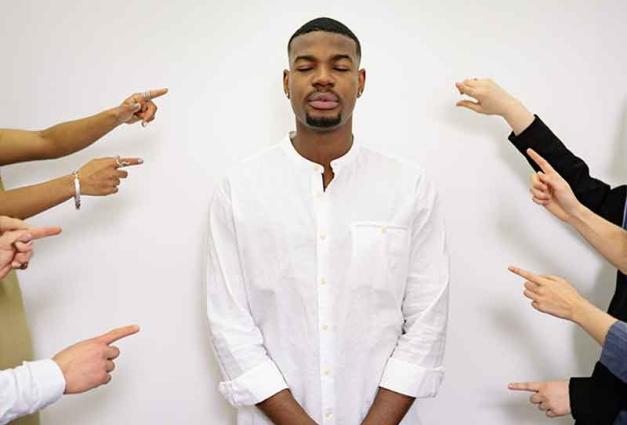Why do citizens of democratic nations elect would-be authoritarians? Why allow political leaders to bias election outcomes with strict voter ID laws and other vote-suppressing strategies? To our research team, the answer seemed obvious: Some people just care surprisingly little about democracy.
In fact, democracies worldwide are in trouble, often due to the actions of leaders whom citizens willingly elect and re-elect. America is no exception.
Practices around Supreme Court appointments have changed such that ideological alignment, rather than judicial record, drives leaders' nominations, and Senators' confirmation votes. Parties strategically redraw district lines—gerrymander—making some citizens' votes count more than others. The convoluted Electoral College, which most Americans would prefer to abolish, has meant that two Presidents in the last two decades took office having lost the popular vote. Political scientists, expert think tanks, research groups, and public opinion polls agree that American democracy is in decline; so much so that the Economist's Intelligence Unit recently downgraded it from Full to Flawed Democracy.
Who is Causing Democracy's Decline?
It's tempting to blame political enemies for eroding democracy. That's where our admittedly left-leaning team's journey began in 2017: We found plausible theoretical reasons to predict that compared to liberals, conservatives cared less about democracy's decline.
We found support for our ideas when we asked Americans to play a quiz game, ranking a set of countries from most to least democratic. Afterward, we revealed America's true position, which was near the bottom of the list (we carefully selected the comparison countries to ensure this result). In three separate studies, liberal but not conservative Americans were more upset after the quiz compared to before. Caring about democracy seemed unique to left-leaning Americans (or those who might support the Democratic party—but don't be fooled, that label is more of a historical accident than anything else).
To make sure this ideological difference wasn't unique to America, we replicated our project overseas: Like in the US, liberals in the UK were more upset than conservatives about weaknesses in their democracy. A simple story was emerging: liberals care more about democracy than do conservatives.
But Could the Story Be That Simple?
Doubts crept in when we considered who was in charge of these two countries at the time of our studies: right-wingers Donald Trump and Theresa May, respectively. It's possible liberals cared more about democracy's decline only because they felt they needed it more to replace a government they disliked. If conservatives disliked their government, they might appear more democratic.
So we imported our study to Canada with its left-leaning leader Justin Trudeau. We were prepared to observe a symmetrical flip, where in this new context of liberal leadership, conservatives would be most invested in democracy. But what we found surprised us: In two studies, no Canadians, whether liberal or conservative, cared much about Canada's democratic weaknesses. We did have to use some deception in these studies, because Canada's democracy is relatively healthy, but that wasn't the issue—we always made sure our participants believed our feedback.
The story was now becoming complex. Conservatives were consistently indifferent to democratic weakness, but liberals seemed sensitive to context: They cared, but only if the government of the day was, in their eyes, undesirable.
To make sure this nuanced pattern was reliable, we tested it in a couple more ways. First, we went back to America, this time targeting participants in states where one party held power in all three branches (the Senate, House, and Governor's office), and suggesting there were weaknesses in these state democracies. Second, we analyzed World Values Survey data linking citizens' happiness to the strength of their country's democracy, depending on their government's ideology (left-governed countries did tend to be more democratic than right-governed ones, but there was still plenty of variation within each group). In both cases, liberals, but not conservatives, were more unhappy with weaker democracy… but only under right-leaning governments. Under left-leaning governments, neither liberals' nor conservatives' distress related to democracy.
Do our results suggest that liberals care more about democracy? The answer is yes and no. On average that seems true, but liberals get complacent when they like their leaders.
Ideally, both sides should guard democracy in any situation. However, our findings suggest even liberals tolerate democratic decline when they're in the driver's seat. In other words, people care relatively more about leaders' ideologies than about whether they uphold democracy's norms.
This is bad news for democracy, but it makes psychological sense, considering the moral urgency of today's political issues. America is so ideologically polarized that a loss spells disaster for things that really matter—for example, protecting traditional values, for conservatives, or achieving group equality, for liberals. Why risk playing fair when there is no common ground between oneself and one's enemies?
For Further Reading
Benjamin, R., Laurin, K., & Chiang, M. (2022). Who would mourn democracy? Liberals might, but it depends on who's in charge. Journal of Personality and Social Psychology, 122(5), 779–805. doi:10.1037/pspa0000291
Diamond, L. J., & Plattner, M. F. (Eds.). (2015). Democracy in decline? Johns Hopkins University Press.
Graham, M. H., & Svolik, M. W. (2020). Democracy in America? Partisanship, polarization, and the robustness of support for democracy in the United States. American Political Science Review, 114(2), 392-409. doi:10.1017/S0003055420000052
Rachele Benjamin recently completed her PhD at the University of British Columbia. Her research focuses on attitudes toward democracy and democratic declines.
Kristin Laurin is an Associate Professor in the Psychology Department of the University of British Columbia. Her research focuses on politics, inequality, and motivated cognition.




